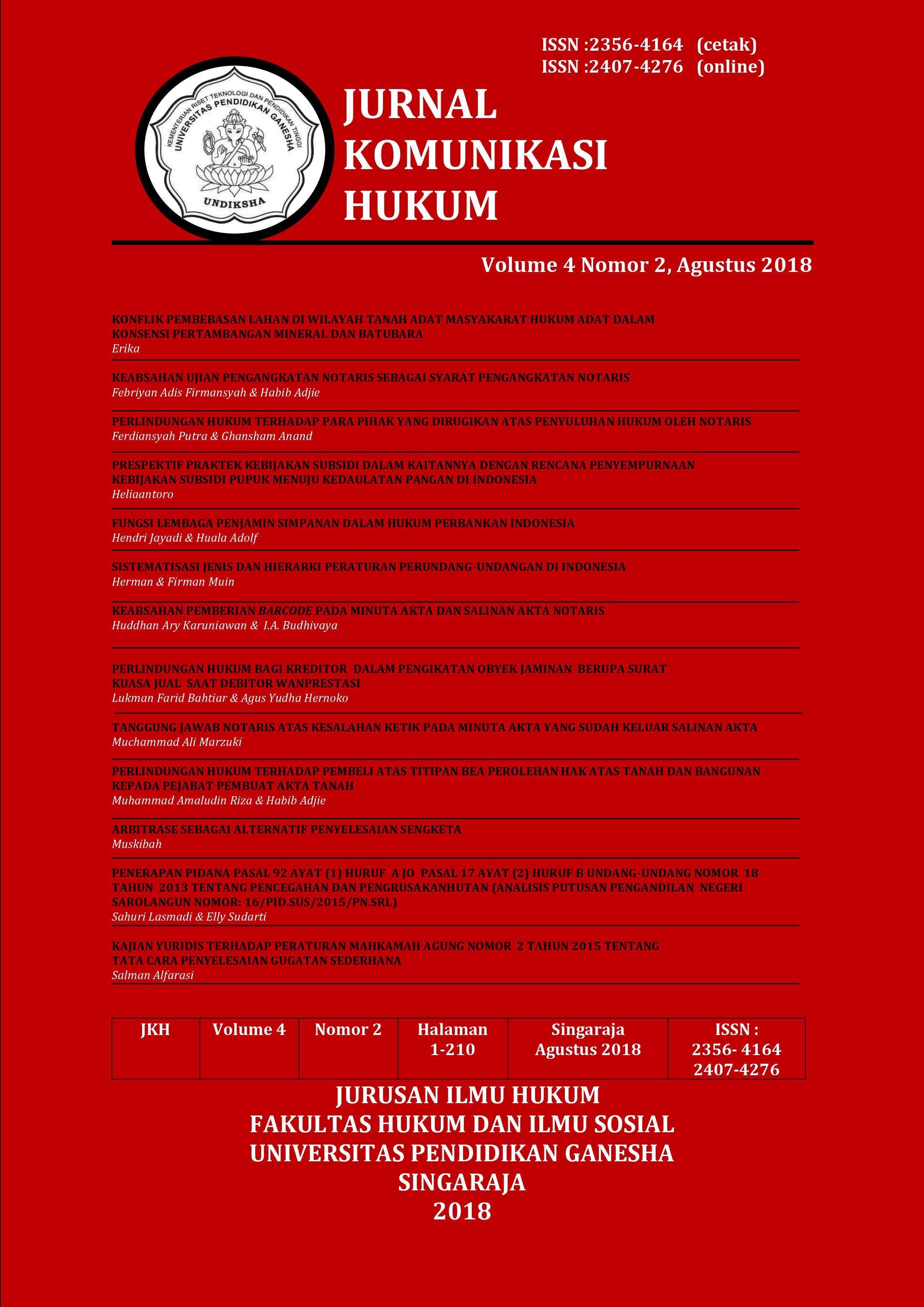DIVERSI SEBAGAI PERLINDUNGAN HUKUM TERHADAP HAK ASASI ANAK DALAM SISTEM PERADILAN PIDANA ANAK DI INDONESIA
DOI:
https://doi.org/10.23887/jkh.v1i1.5009Abstract
Kenakalan anak (juvenile delinquency) tidak sama dengan kejahatan orang dewasa. Penanggulangan kenakalan anak harus bertolak dari pemahaman yang tepat. Pemahaman ini utamanya didasarkan dengan melihat faktor penyebab mengapa anak menjadi nakal. Tulisan ini mencoba mengupas upaya penanggulangan kenakalan anak menggunakan pendekatan kriminologi. Tiga teori kriminologi yang digunakan sebagai pisau analisis, yakni teori differential association, teori kontrol sosial dan teori labeling. Diversi atau pengalihan yang dikenal dalam Sistem Peradilan Pidana Anak berperan sebagai upaya penanggulangan kenakalan anak. Diversi menghindari anak belajar perilaku jahat, memperbaiki hubungan anak dengan masyarakat, menghindari stigmatisasi/ cap jahat pada anak. Beberapa hal ini menegaskan diversi sebagai upaya penanggulangan kenakalan anak (juvenile delinquency) perspektif kriminologi.
Kata Kunci : Diversi, Kenakalan Anak, Keadilan Restoratif
Downloads
Published
How to Cite
Issue
Section
License
Authors who publish with this journal agree to the following terms:- Authors retain copyright and grant the journal right of first publication with the work simultaneously licensed under a Creative Commons Attribution License that allows others to share the work with an acknowledgement of the work's authorship and initial publication in this journal.
- Authors are able to enter into separate, additional contractual arrangements for the non-exclusive distribution of the journal's published version of the work (e.g., post it to an institutional repository or publish it in a book), with an acknowledgement of its initial publication in this journal.
- Authors are permitted and encouraged to post their work online (e.g., in institutional repositories or on their website) prior to and during the submission process, as it can lead to productive exchanges, as well as earlier and greater citation of published work (See The Effect of Open Access).
Authors who publish with this journal agree to the following terms:
- Authors retain copyright and grant the journal right of first publication, with the work [SPECIFY PERIOD OF TIME] after publication simultaneously licensed under aCreative Commons Attribution License that allows others to share the work with an acknowledgement of the work's authorship and initial publication in this journal.
- Authors are able to enter into separate, additional contractual arrangements for the non-exclusive distribution of the journal's published version of the work (e.g., post it to an institutional repository or publish it in a book), with an acknowledgement of its initial publication in this journal.
- Authors are permitted and encouraged to post their work online (e.g., in institutional repositories or on their website) prior to and during the submission process, as it can lead to productive exchanges, as well as earlier and greater citation of published work (See The Effect of Open Access).












